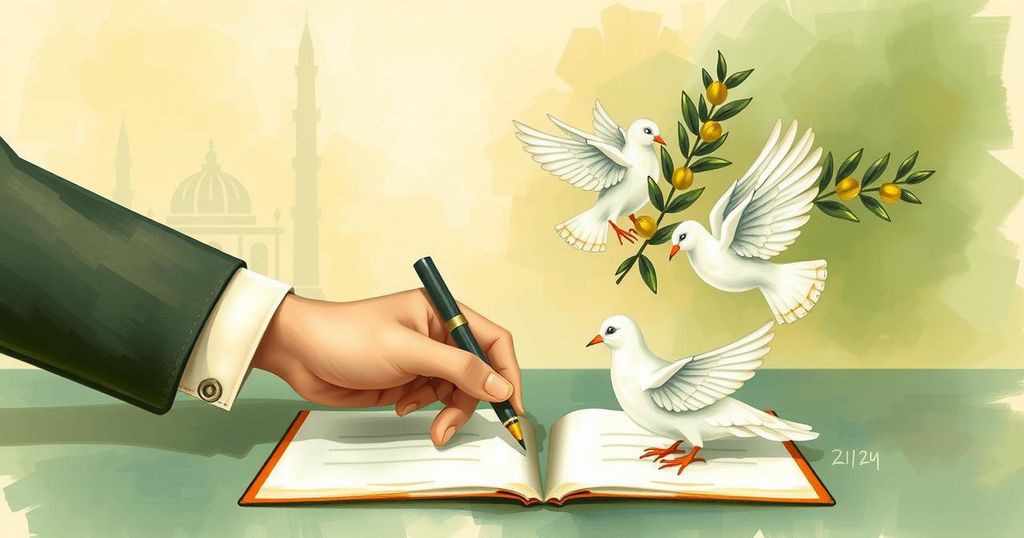Trump Announces Peace Treaty Between Congo and Rwanda, Says Great Day for Africa
President Trump announced a peace treaty between Congo and Rwanda, marking a hopeful turn after years of conflict. He expressed disappointment over the lack of recognition from the Nobel Peace Prize committee despite his global peace efforts. Meanwhile, rising tensions with Iran continue to pose challenges, as Trump considers military options involving the country.
US President Donald Trump made headlines on Saturday by announcing a peace treaty between the Democratic Republic of the Congo and Rwanda, claiming a significant milestone for Africa. This agreement seeks to end decades of conflict, described by Trump as marked by severe violence and casualties. The treaty signing is set to take place in Washington on Monday, with representatives from both nations in attendance.
Trump, utilizing his media platform Truth Social, expressed his enthusiasm for what he termed a “wonderful Treaty”. He emphasized the severity of the conflict, noting how unusually violent it was compared to other wars. He declared this event a “Great Day for Africa and, quite frankly, a Great Day for the World!”
In an interesting twist, Trump also reflected on his efforts for global peace. He lamented the lack of recognition from the Nobel Peace Prize committee, mentioning various conflicts he claimed to have had an impact on, including situations in India, Pakistan, and the Middle East. “No, I won’t get a Nobel Peace Prize no matter what I do,” he stated, insisting that public acknowledgment matters more than awards.
Earlier in the week, White House Press Secretary Karoline Leavitt confirmed that Trump is weighing whether to take direct military action against Iran within the next two weeks. She relayed a message from Trump to the press regarding ongoing speculations of possible interventions amid negotiations.
Leavitt clarified that communication channels between the US and Iran remain active. However, specific details about the negotiations, whether direct or through intermediaries, were not disclosed. Regarding the nuclear discussions, she emphasized the US’s demand that Iran cease uranium enrichment and comply with conditions preventing nuclear weapon development.
When asked if he would authorize a military strike on Iran, Trump maintained a position of ambiguity, saying, “I may do it, I may not do it. No one knows what I’m going to do.” He asserted that Iran is in a lot of trouble and urged them to initiate negotiations before further conflict ensues.
Tensions continue to escalate, with the situation fueled by recent exchanges of strikes between Israel and Iran. An analysis from Al Jazeera noted that Iran, previously supported by Hezbollah, has seen its deterrence seriously weakened by recent conflicts. Additionally, the fall of Syria’s former President Bashar al-Assad has shifted the geopolitical landscape, increasing the risk of wider regional instability.
Amid these tensions, Iran’s threats to disrupt shipping through the Strait of Hormuz have raised concerns regarding economic repercussions globally, particularly due to potential spikes in oil prices. As the world watches these developments unfold, the implications of Trump’s treaty and broader conflict dynamics remain to be seen.
In summary, President Trump has brokered a peace treaty between the Democratic Republic of the Congo and Rwanda, aiming to end decades of violence. While this announcement is being hailed as a significant diplomatic breakthrough, it comes amidst ongoing tensions with Iran. Trump’s remarks highlight his frustration with the Nobel Peace Prize committee, suggesting he believes his contributions to global peace are overlooked. As geopolitical tensions simmer, particularly involving Iran and Israel, the situation remains fluid and complex.
Original Source: www.tribuneindia.com




Post Comment